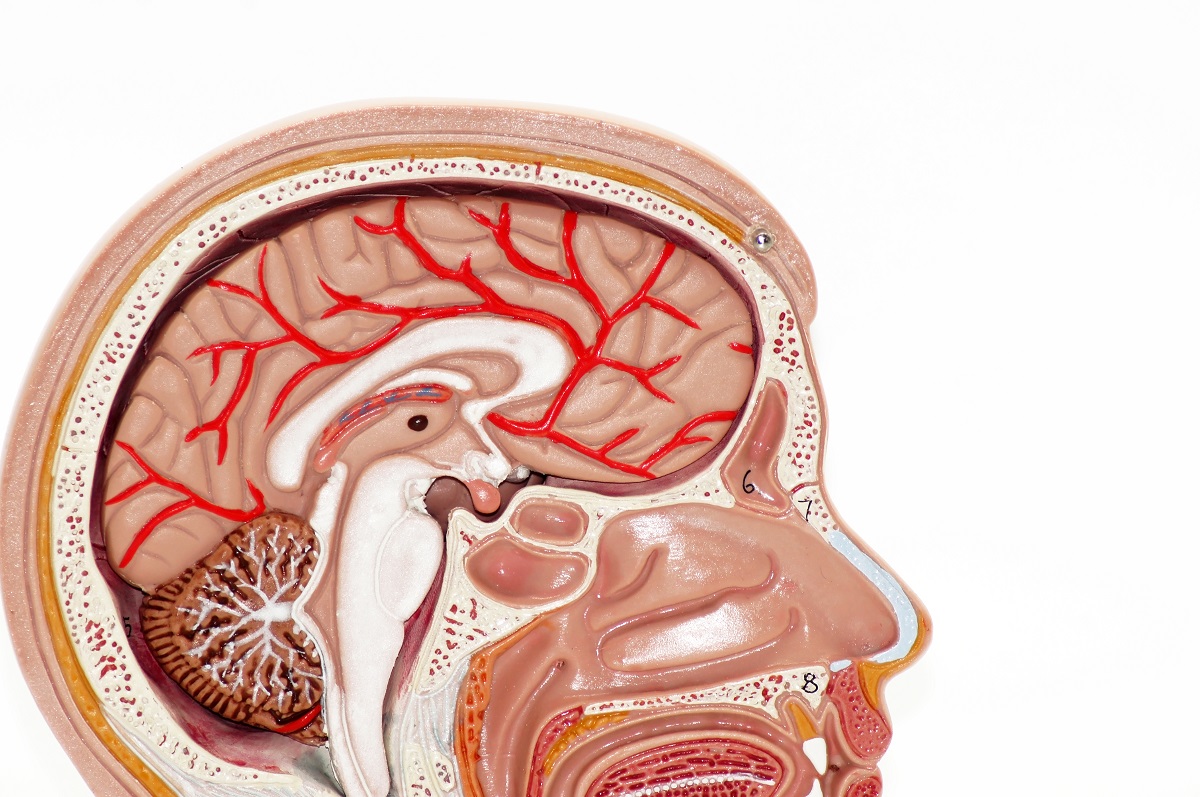This is a rare condition in which the pituitary gland does not produce one or more hormones or does not make enough hormones. It is called hypopituitarism. This gland is located at the brain’s base and it is a part of the endocrine system of glands that produce hormones. Moreover, the pituitary gland makes different hormones that act on all body parts.
When this gland does not produce enough hormones, hypopituitarism occurs. Deficiency of pituitary hormones negatively affects different body functions. These include blood pressure, growth, fertility, and others. However, symptoms appear differently among people because it depends on which hormone is not enough or missing.
Commonly, people with this condition should take medicines for their entire life. Thus, medications help supply the missing hormone, which helps lessen the symptoms and improve your quality of life.
Symptoms
The symptoms usually appear differently among people because it depends on which hormones are not enough or missing. While some people experience symptoms over time, in others symptoms may appear suddenly. For example:
Growth Hormone (GH) Deficiency
Reduced growth hormone may cause delayed growth and development, which may lead to short stature. Adults with growth hormone deficiency usually do not experience any symptoms but sometimes, they may happen. For example:
- Body fat changes
- Muscle weakness
- Extreme tiredness (fatigue)
- Loss of interest in activities, which usually leads to a lack of social contacts
Luteinizing Hormone (LH) and Follicle-stimulating Hormone (FSH) Deficiency
These hormones are also called gonadotropins and reduced levels of LH and FSH may negatively affect the reproductive system. For instance, decreased gonadotropins may prevent ovaries from producing eggs and Estrogen and testicles from making Testosterone and sperm. As a result, low sex drive, tiredness, and infertility may occur. Gonadotropin deficiency in children may cause delayed or even no puberty. Check below some symptoms:
- Hot flashes
- Loss of pubic hair
- Irregular or even no menstrual periods
- Erectile dysfunction (ED)
- Reduced body and facial hair
- Extreme tiredness
- Mood swings
- Inability to make milk for breastfeeding
Thyroid-stimulating Hormone (TSH) Deficiency
TSH helps the thyroid gland to function properly and if a deficiency occurs, it may lead to decreased thyroid hormone levels. This condition is known as hypothyroidism. Check below some symptoms:
- Constipation
- Dry skin
- Weight gain
- Tiredness
- Sensitivity to cold or warm
Adrenocorticotropic Hormone (ACTH) Deficiency
This is a hormone that helps adrenal glands function correctly. ACTH also helps the body react to stress. Check below some symptoms caused by ACTH deficiency:
- Confusion
- Nausea or vomiting
- Lasting infections
- Hypotension (low blood pressure)
- Fatigue
- Abdominal pain
Anti-diuretic Hormone (ADH) Deficiency
This hormone helps to balance the body’s fluid levels and its deficiency may cause a health condition called diabetes insipidus. ADH is also called vasopressin. Check below some symptoms:
- Electrolyte imbalances (such as Sodium and Potassium)
- Extreme thirst
- Frequent urination
Prolactin Deficiency
This hormone is responsible to begin produce breast milk and if Prolactin levels are low it may lead to problems with producing milk for breastfeeding.
If you experience any of the previous symptoms, do not hesitate to see a doctor. However, sometimes, people may experience pituitary apoplexy (a condition that occurs due to pituitary tissue damage). Pituitary apoplexy is a medical emergency and it is caused by certain symptoms. For example severe headaches, vision changes, confusion, a sudden drop in blood pressure, and bleeding into the pituitary gland. For more details, discuss it with your healthcare provider.
Causes
There are different causes that may lead to hypopituitarism. One of the most common causes of this condition is a tumor that appears on the pituitary gland. When the tumor grows, it puts pressure on the pituitary gland, which negatively affects its function. Moreover, the pituitary gland tumor may also cause vision problems because it presses on the optic nerve. Check below other hypopituitarism causes:
- Reduced or lack of blood flow to the brain or pituitary gland caused usually by a stroke or internal bleeding (hemorrhage)
- Medicines such as narcotics, high-dose steroids, or checkpoint inhibitors (also called cancer medications)
- Swelling (inflammation) of the pituitary gland which may occur due to an immune system’s response (also known as hypophysitis)
- Brain infections including meningitis and other infections that may spread to the brain (such as syphilis, tuberculosis, and others)
- Severe blood loss may occur during childbirth. It may cause damage to the pituitary gland (this condition is usually called Sheehan syndrome or postpartum pituitary necrosis)
Some people may experience hypopituitarism due to a mutated (changed) gene. The abnormal gene that causes reduced pituitary gland function often runs in families. Furthermore, tumors or conditions of the hypothalamus (another brain part) also may lead to hypopituitarism. The hypothalamus also produces hormones that act on how the pituitary gland works. However, there are cases where it is not possible to determine the exact cause.
Risk Factors
Anyone may develop hypopituitarism and the following factors elevate your risk. Examples include:
- Radiation therapy (treatment used to destroy cancer cells) to the neck or head
- Brain surgery
- Head injuries
- Health conditions that negatively affect other body parts. For instance sarcoidosis (a condition that causes inflammation to multiple body organs), Langerhans cell histiocytosis (a disease in which certain cells cause scarring), and hemochromatosis (a health condition that causes an increase of Iron levels in the liver and other body structures).
Diagnosis
There are different tests available to diagnose hypopituitarism. For example:
- Blood tests – Physicians usually perform blood tests to measure levels of pituitary gland hormones. These tests also may show how the pituitary gland works.
- Stimulation or dynamic testing – These tests also are used to measure hormone levels before and after administering medications.
- Brain imaging – These include CT and MRI scans that help doctors get detailed images of the brain and pituitary gland.
Treatment
In most cases, doctors treat this condition with medicines that elevate hormone levels. It is also known as hormone replacement. However, some people may take medicines for the rest of their lives. Check below some hormone replacement medicines:
- Levothyroxine – It is used to treat low thyroid hormone levels (hypothyroidism) due to a lack of thyroid-stimulating hormone (TSH).
- Cortisol replacement – For example Prednisone or Hydrocortisone. These medications are taken orally to replace the adrenal hormones required due to a lack of ACTH.
- Sex hormones – For example, Estrogen, Progesterone, and Testosterone.
- Growth hormone – It is also known as somatropin and it is given to patients by a shot under the skin. It helps improve growth in children.
- Fertility hormones – These hormones usually are given by a shot to help ovulation and sperm production.
Other Treatments
If hypopituitarism is caused by a tumor on the pituitary gland, doctors usually recommend surgery that removes the tumor. In case the tumor is detected early, surgery may be the only treatment needed. In other cases, physicians may recommend additional treatments (such as chemotherapy or radiation therapy) to destroy the cancer cells that may remain after surgery.
Frequently Asked Questions
What are the main symptoms of hypopituitarism?
People with this condition usually experience the following symptoms. Examples include:
- Short height
- Reduced tolerance to cold
- Extreme tiredness (fatigue)
- Lack of breast milk
- Infertility
Immediately contact your healthcare provider if you experience any of the symptoms listed above.
Can hypopituitarism be cured?
Yes, with medications that increase the pituitary hormone levels. Unfortunately, some people may need to take medicines for the rest of their lives. Consult with your physician for more details.
What happens if hypopituitarism is left untreated?
Those who ignore the symptoms and do not treat this condition may experience some complications. Moreover, it may lead to permanent disability or even death. Ask your doctor if you have additional questions.




